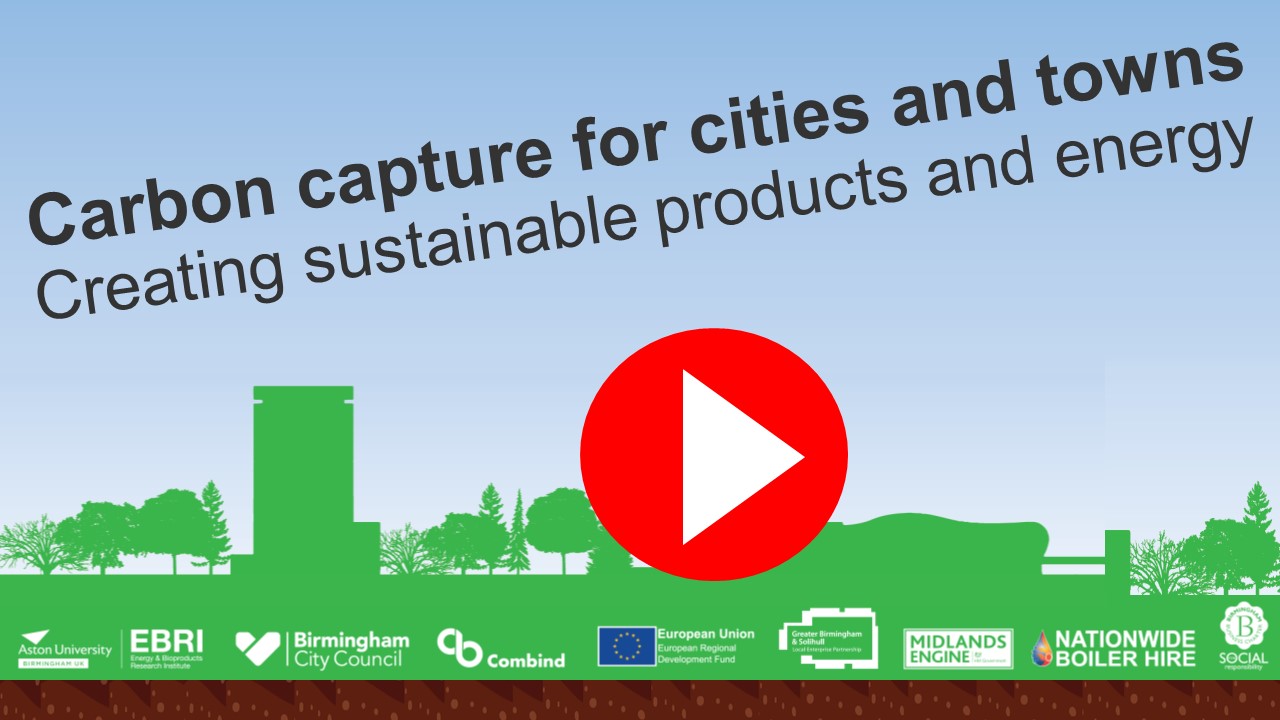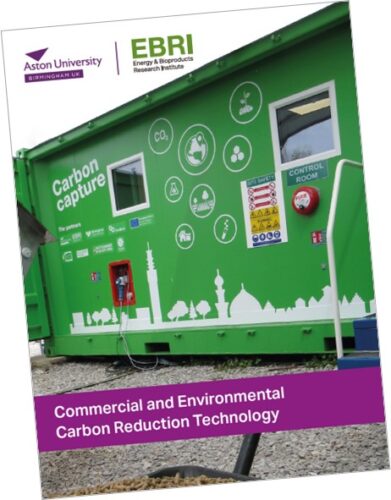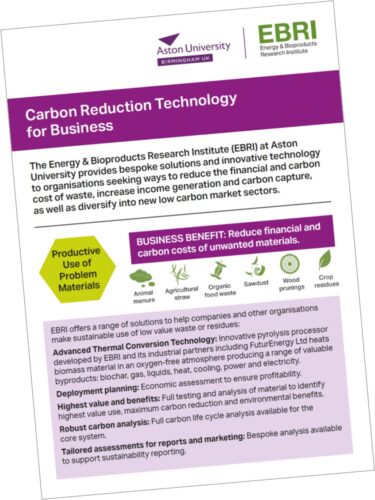Achieving net zero targets is important for our local environment and economy. Carbon capture and the recycling of waste materials are two ways of meeting this goal.

Carbon capture
Biochar can offset 1.8 billion metric tons of carbon emissions annually*
Organic waste, such as tree and shrub cuttings, offers a number of opportunities. Urban environments generate a multitude of such material from our gardens, streets and parks, which can be shredded and upcycled into an innovative, useful product known as ‘biochar’ – a sustainable form of charcoal. This valuable bioproduct offers a wide variety of benefits including carbon capture, water treatment, odour control, industrial applications and soil improvement.
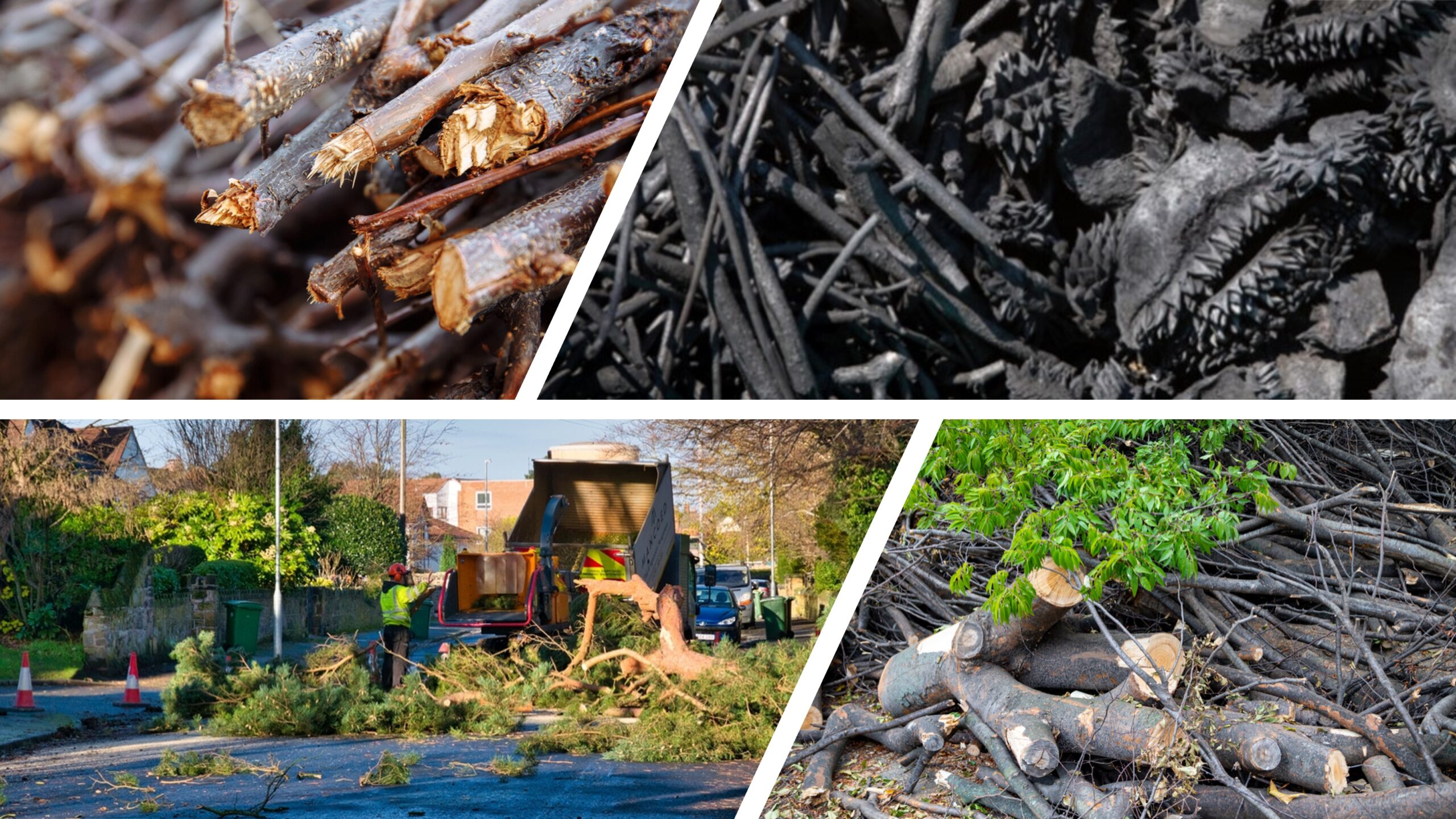
EBRI
The Energy & Bioproducts Research Institute (EBRI) at Aston University has been granted Local Growth Funding from the Greater Birmingham and Solihull Local Enterprise Partnership (GBSLEP) to deliver an Urban Biochar and Sustainable Materials Demonstrator project which can benefit the local region both environmentally and economically. The main objectives of this initiative are to:
- develop biochar for the benefit of city and town environments, and local economies;
- research how biochar can be used as a soil enhancer in urban landscapes;
- conduct scientific modelling to assess the carbon capture merits of biochar.
The EBRI team and its project partners have developed a mobile production unit situated at Birmingham City Council’s Cofton Nursery, a horticultural site near the Lickey Hills on the outskirts of the city. This innovative demonstrator is devised to thermally convert wood cuttings from around Birmingham and Solihull into biochar. When wood and other plant material is heated without oxygen by a process known as ‘pyrolysis’ it produces a number of valuable byproducts including gases, oils and biochar. Processing organic waste materials in this way prevents them from releasing greenhouse gases and provides a safe and long-term way of capturing carbon.
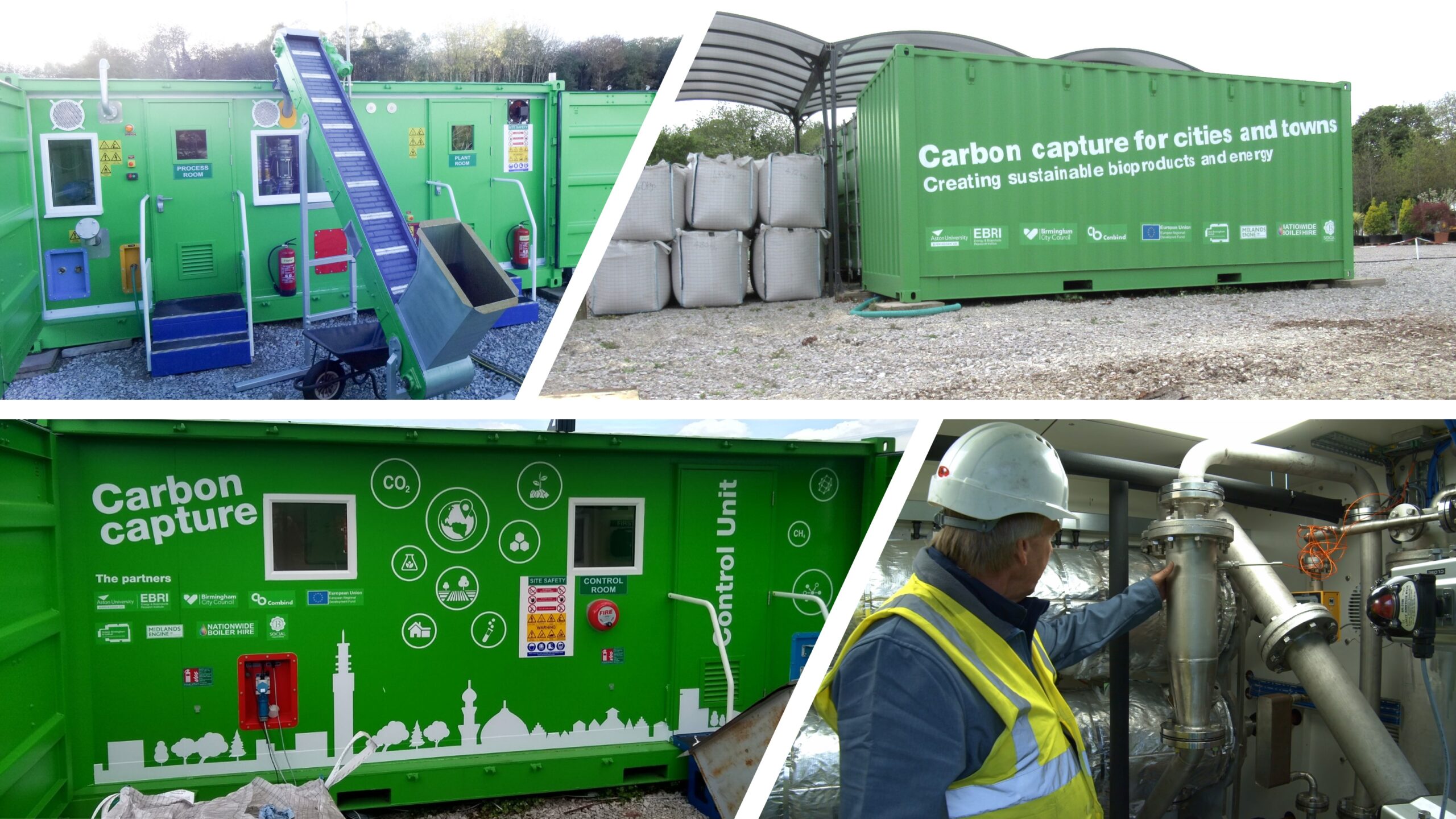
Cofton demonstrator
See film here
Case Study
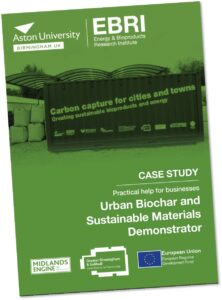 See full case study here
See full case study here

Project partners: Aston University (EBRI), Birmingham City Council, Combind Industries Ltd, Greater Birmingham and Solihull Local Enterprise Partnership, Nationwide Boiler Hire Ltd.
Project funders: Greater Birmingham and Solihull Local Enterprise Partnership (Local Growth Fund), Midlands Engine, Aston University, Combind Industries Ltd, European Union (European Regional Development Fund).
This project was also supported by: Barton Firtop Engineering Company Ltd, FuturEnergy Ltd, J & U Services Ltd, RGR Fabricating and Welding Services Ltd.
Brochures
Commercial and Environmental Carbon Reduction Technology
Carbon Reduction Technology for Business
*Science News: DOE/Pacific Northwest National Laboratory. August 12, 2010

